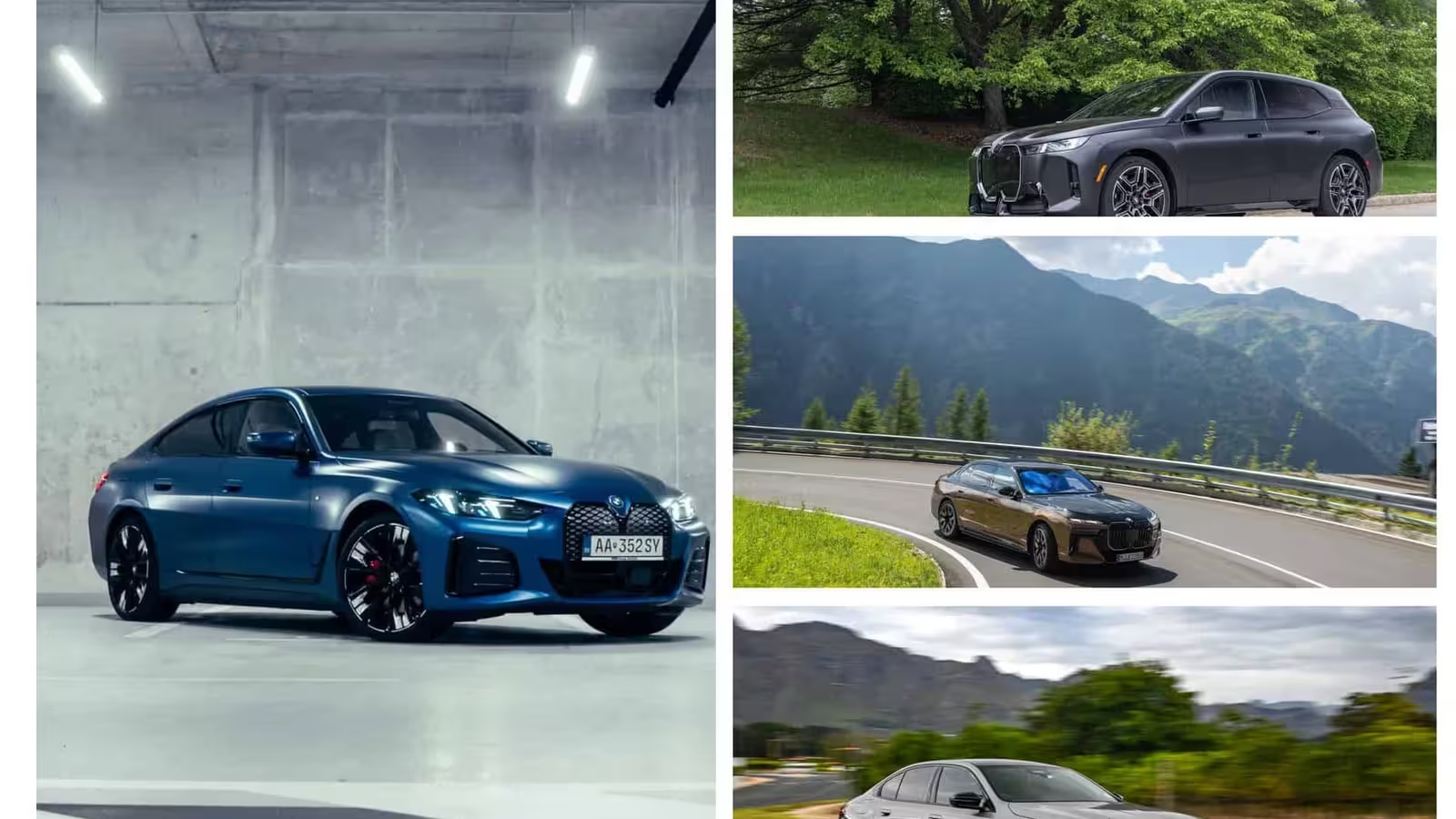5 Minutes
Electric vehicles have revolutionized the automotive world with their promise of reduced running costs, minimal emissions, and innovative performance. However, when it comes to long-term ownership, one critical question for car buyers remains: How do electric BMWs fare in terms of depreciation compared to their traditional gasoline-powered counterparts? In this in-depth analysis, we explore the depreciation rates of BMW's leading EVs—the i4, i5, i7, and iX—benchmarking them against similar internal combustion engine (ICE) models to reveal which models hold their value best over time.
Depreciation: A Key Factor in BMW Ownership
When shopping in the luxury vehicle segment, depreciation is a significant factor. BMW, renowned for delivering an outstanding driving experience and cutting-edge technology, is often scrutinized for higher initial depreciation compared to mainstream brands like Toyota or Honda. Electric vehicles, regardless of marque, are also known to decline in value faster than their gas-powered siblings. We leverage data from respected car analytics firm iSeeCars to provide a side-by-side look at value retention for BMW’s EVs versus ICE siblings.
BMW i4: Specifications, Performance, and Depreciation
The BMW i4, a sporty electric Gran Coupé, seamlessly blends BMW’s signature handling with up to 536 horsepower and a range approaching 300 miles. Despite its compelling specs, the i4 faces notable depreciation: after three years, its value drops by 49.4%. By the five-year mark, owners can expect a 68.1% reduction from the original MSRP. Meanwhile, the comparably equipped BMW 4 Series with a gasoline engine fares significantly better, depreciating 33.1% over three years and 57% after five years.
Design and Market Position
As the entry-level electric sedan, the i4 attracts buyers with its accessible price point and renowned BMW quality. Its lower starting MSRP compared to other BMW EVs slightly cushions its resale value decline.
BMW i5: Luxury Meets Steep Depreciation
A recent addition to the BMW EV family, the i5 combines executive sedan elegance with emission-free performance. Under the hood, dual motors deliver brisk acceleration and advanced tech features. However, the i5 suffers from rapid depreciation, losing 57.7% of its value after only three years, and a dramatic 73.6% after five years—averaging nearly $49,394 in lost value. For context, the traditional BMW 5 Series loses 43% and 61.4% over the same periods, respectively.
Performance and Positioning
The i5 is positioned as a luxury midsize sedan for eco-conscious executives, but the head-turning depreciation could give potential buyers pause when considering long-term ownership costs.
BMW i7: Flagship Luxury, Maximum Depreciation
The i7 stands at the pinnacle of BMW’s electric range, offering limousine-level comfort, cutting-edge semi-autonomous driving features, and up to 536 horsepower. Yet, its premium position doesn’t shield it from harsh depreciation. After three years, an i7 will lose 61.6% of its value; that figure balloons to 77% after five years—equivalent to an average depreciation of $81,411, outstripping the price of any other entry-level BMW EV. Its gasoline-powered sibling, the 7 Series, sees a 52.1% and 66.4% drop in value after three and five years, respectively.
Design & Technology
While the i7 dazzles with bespoke interiors and advanced tech, luxury electric sedans tend to depreciate sharply due to rapid advancements in EV technology and high sticker prices.
BMW iX: Unique EV Utility, Unique Depreciation
The BMW iX, a bold all-electric SUV with futuristic styling and up to 516 hp, is unlike any ICE model in BMW’s current range. Despite its singular status, it records a substantial 52.3% depreciation over three years and 70.5% after five years. The closest comparison is the X5 plug-in hybrid, which depreciates at a gentler rate of 42.2% over three years and 58.4% after five.
Market Position & Design
The iX appeals to tech-forward families and adventurers, yet its lack of a direct gasoline counterpart reflects a higher risk in resale value stability.
Which BMW EV Retains Value Best?
Although BMW electric vehicles generally experience greater depreciation than their gas-powered brethren, the i4 emerges as the best performer among the current EV lineup. Its lower MSRP gives it a smaller financial cliff, offering better value retention compared to higher-priced options like the i7 and iX. With BMW preparing to debut a new generation of EVs under the Neue Klasse banner, all eyes will be on how these next-gen electric vehicles fare in terms of resale value and long-term ownership costs.
Conclusion: Depreciation and the Future of BMW Electric Vehicles
For buyers prioritizing resale value, BMW's electric models still lag behind their gasoline and even hybrid counterparts regarding depreciation. The i4 is your best bet for value retention in the current EV lineup, but all electrified BMWs remain a step behind comparable gas-powered models. Keep an eye on technological advancements, changing market dynamics, and upcoming releases; these factors may eventually close the depreciation gap and boost the financial appeal of premium electric vehicles in years to come.
Source: bmwblog


Leave a Comment